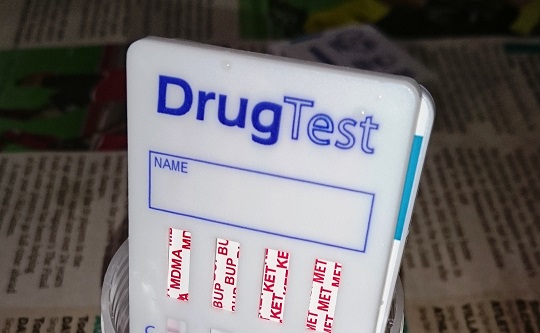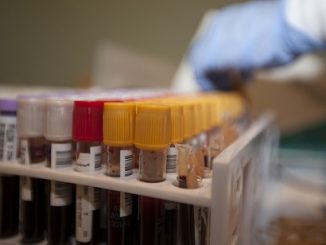
Around 50 drug-driving prosecutions have been dropped because original test results may have been “manipulated”.
More than 10,000 cases, including violent crime, may have been affected, police chiefs said.
They probed Randox Testing Services in Manchester after two men were arrested on suspicion of perverting the course of justice in February.
BBC home affairs correspondent Danny Shaw said it was “the biggest forensic science scandal in the UK for decades”.
Re-tests will have been carried out on 1,500 cases by the end of the year.
Lawyers for two people convicted over road deaths are now seeking to take their cases to the Court of Appeal.
Concerns have also been raised about thousands of drug test results relied on by the civil courts to determine child custody issues and employment cases.
A total of 42 police forces across the country sent data to the laboratory for testing.
Of the 10,000 cases that could have been affected, 75% were traffic offences, such as drug driving, the National Police Chiefs’ Council said.
Other cases included violent crime, sexual offences and unexplained deaths.
So far, re-tests on samples involved in sexual offence cases, violence or homicide have showed no change.
James Vaughan, from the NPCC, said of 50 cases dropped that were due to go to trial, some were down to no sample being available to re-test, or the sample being insufficient in quality or quantity.
Not every court was sympathetic to requests for proceedings to be adjourned, which in turn led to more cases being dropped, he added.
However, only 70% of the cases sent to the laboratory have been re-tested so far – which the NPCC deemed the highest priority cases. The other retests should be completed by the middle of 2018.
Analysis
By BBC home affairs correspondent Danny Shaw
The scale of the re-testing that will now have to take place, together with a dearth of suitably-qualified experts, is such that police reckon it will be three years before all the re-testing is completed.
I think that’s a conservative estimate – it does not include the re-testing that may have to be done in non-criminal cases.
The impact on an overstretched criminal justice system, where there are already delays in examining forensic evidence, can’t be under-estimated; neither can the effect this will all have on public confidence.
It will also doubtless raise questions about the decision to close down the government-owned Forensic Science Service in 2012, though private companies already played a big part in scientific testing before then.
Widespread audit
Potential data manipulation at a different facility, Trimega Laboratories, is also being investigated by Greater Manchester Police, said the NPCC.
In these incidents, child protection and family court cases could be affected.
Nick Hurd, the minister for policing, fire and criminal justice, said all tests carried out by Trimega between 2010 and 2014 were currently being treated as “potentially unreliable”.
He also said due to “poor record-keeping practices”, it may not be possible to identify all the customers affected.
The Forensic Services Regulator said it had asked all major centres to carry out an audit of their cases to look at whether the issue was more widespread, but no evidence was uncovered.
Gillian Tully, from the regulator, said: “If there was large-scale manipulation going on across the board, I do expect it would have been found during that audit.”
‘Lives destroyed’
Nick Freeman, a solicitor who has defended clients who were inaccurately tested for drugs by Randox, said: “It’s absolutely imperative that the public have total confidence in a thoroughly reliable forensic science service, because we need to be sure that the results that are produced are 100% accurate.
“If they’re not, innocent people are going to lose their children, be incarcerated, have their lives destroyed, on the basis of an entirely false premise.”
Mr Hurd added: “The government recognises the seriousness of this issue and the potential impact on public confidence in the use of forensic science within the justice system.
“The senior judiciary are aware and government officials are working with the police to monitor the scale of the issue, as information emerges.”
Source: bbc.co.uk






Be the first to comment